Patrick Grant is known to many as the nattily moustachioed judge on BBC television’s The Great British Sewing Bee. But he is also a serial entrepreneur, responsible for reviving Savile Row tailoring business Norton & Sons; buying, then bringing back from insolvency, the textile factory Cookson & Clegg; and creating the social enterprise fashion brand Community Clothing. His ambition is to use the latter to restore the UK’s once proud textile manufacturing industry.
The catalyst for all of these ventures was his time studying at the University of Oxford’s Saïd Business School.
“When I was an undergraduate [studying for a material sciences degree at the University of Leeds], I spent most of my time in nightclubs,” Grant says over afternoon tea in Soho, central London. “But, as a postgraduate, I took time to talk to people and really learnt from it.”
He has stopped off for a chat at his media agent’s offices during a flying visit to the capital to attend an event for Future Textiles, a charity he co-founded alongside the future King Charles to teach craft skills to young Britons. Grant’s current centre of gravity is Community Clothing’s headquarters in Blackburn, Lancashire, “one of those former textile towns that has had the arse absolutely ripped out of it”.
Grant arrives by bike — road cycling is a hobby — but sweeps in, the best dressed man in the room, in a full-length navy blue wool winter coat and scarf. I shrink into my seat, arms crossed over my lunch-stained office suit, in his towering presence — he is well over 6ft tall and speaks loudly. It is only when he unbuttons the coat that I relax; he is wearing nothing more formal underneath than a slightly sweaty T-shirt, loose-fitting slacks and black trainers.
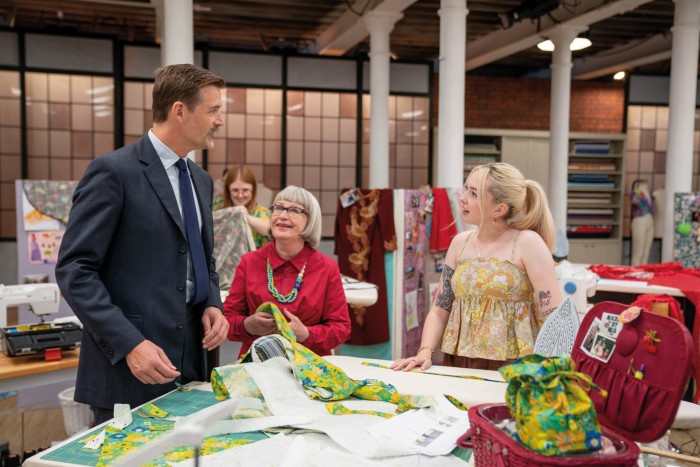
Before Saïd, Grant had only dabbled in entrepreneurship as a boarding school pupil, making toast in the common room then selling it to his dormitory mates after lights out, adjusting the price according to supply and demand.
“We pre-empted Stelios [Haji-Ioannou, the founder of the low-cost airline easyJet] with a price elasticity model, where the price of a slice went from 10p to a quid as we approached the end of the loaf,” he says.
Before Saïd, Grant’s career was built on his bachelor’s engineering degree, which led to a job at British optical components business Bookham Technology. Bookham offered to fund his studies in 2004 — in his case an executive MBA — while he continued to work.
Buying a business was not a particular reason for applying to business school, although he was more open to that than the more common MBA options of banking or a management consultancy. He applied only to London Business School and Saïd — receiving offers from both — but chose the latter in 2004 because the Oxbridge practice of matriculating students into multidisciplinary colleges sounded “way more interesting than just being part of a business school”.
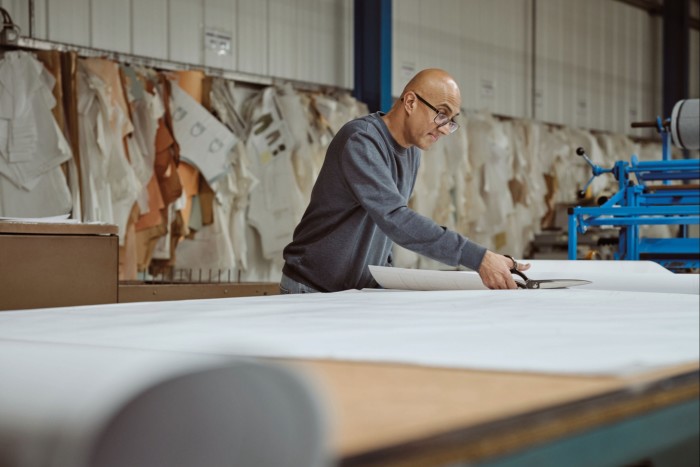
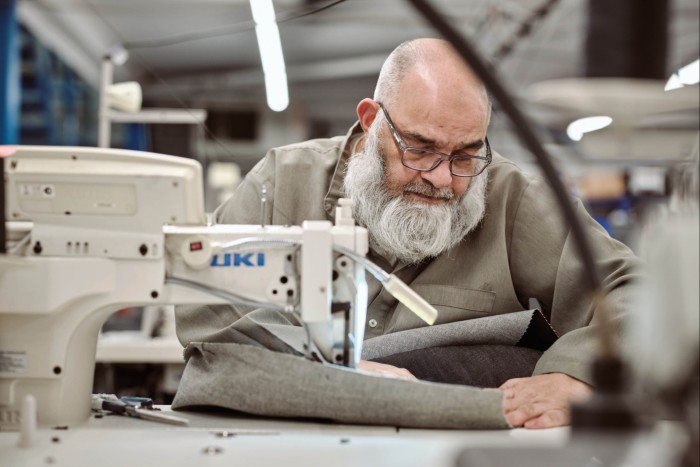
Grant played rugby for New College and competed in modern pentathlon for Oxford university, in both cases alongside teenagers as well as older postgraduates. “It was just about opening my mind to other stuff,” he says.
His entrepreneurial instincts were awakened by an advert in a copy of the Financial Times, left around the Saïd common room, offering Norton & Sons for sale. Due diligence showed the business was close to collapse, but Grant was struck by the seemingly low price for an institution on the world’s most famous tailoring street — “hundreds of thousands of pounds, not millions”. He sold his house and car and borrowed money from his family, and some of his Oxford friends, to buy Norton. Then, he began the long slog of returning it to profit.
The task was harder still at the 160-year-old Blackburn-based clothing manufacturer Cookson & Clegg, which Grant bought in 2015. Undeterred, a year later, Grant founded Community Clothing in the same Lancashire mill town.
Global MBA Ranking 2024

This story is from the ranking report publishing on February 12. Spotlight on the MBA webinar, February 21: businesseducation.live.ft.com
Both Norton and Cookson have been through voluntary liquidation and he was forced to make their employees redundant — “a humbling process” that “saps the life out of you”. But he has revived the brands, bringing them together under the banner of a new company, Walter Grant Norton, and rehiring the entire workforce.
He is candid about the difficult times at Norton and then Cookson. “We had one customer who didn’t pay us for a year, then Covid struck, but we realised that we could help with PPE manufacture,” he says. “You have to ride your luck.”
The MBA provided a finance and economic grounding but was not enough to guarantee success in a difficult industry, Grant says. He stresses that his cohort was “full of excellent people”, but it was a couple of chance encounters after graduation — and outside the Saïd MBA network — that helped his pivot into fashion to really take off.
About six months after Grant took control of Norton in 2005, the BBC decided to make a documentary on Savile Row, which had good viewing figures. “I just got on really well with the director,” he says. “It was particularly good marketing for Norton and it cost us nothing apart from a few cups of tea and a couple of biscuits.”
The timely second lucky break was being connected with Kim Jones, Dior men’s artistic director, by an old school friend, who thought Norton & Sons might be able to help with advice about tailoring. Six months later, Jones phoned Grant, asking whether he had time to cut and sew some garments for a television programme he was making.
“I went hang on, I’ll just go and check in the work room,” he recalls. “I wandered through to the back and, you know, tumbleweed was blowing through. And I was like, yeah, I reckon we can just about fit you in.”
Grant is now a man with an ambitious vision, not only for his businesses, but also to offer a model to upend society’s attitudes to what it wears.
“I could transform the entire British clothing industry from one that currently produces huge quantities of low-value products, by making the UK an economy that consumes very small quantities of very high-quality product with high-quality, locally sourced material. You can then create a whole secondary industry that deals with repair,” he says.
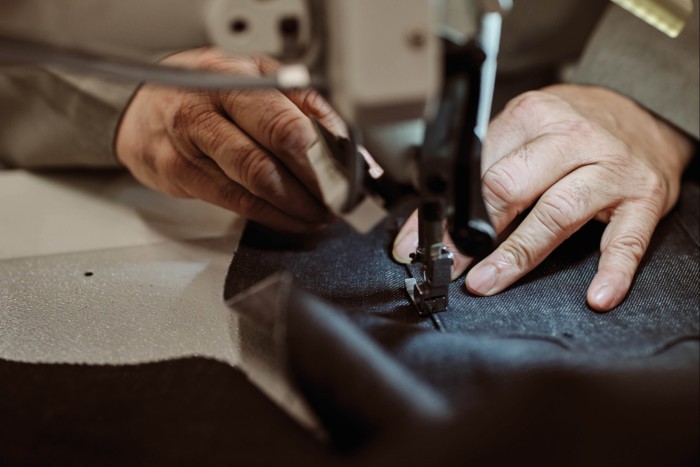
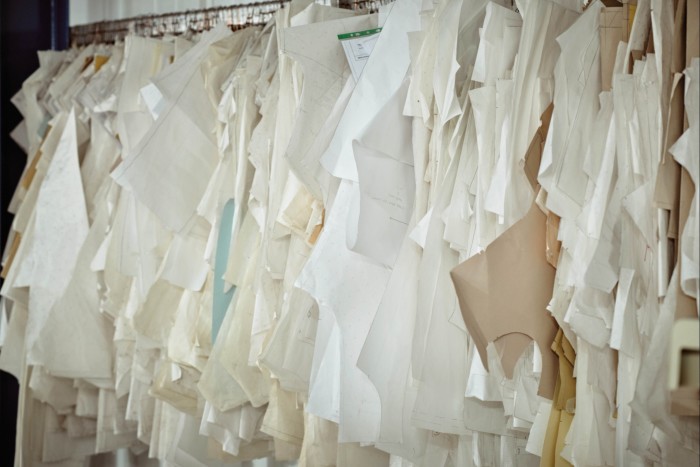
Community Clothing is modelling this future. Its garments come from a network of 45 UK-based factories, 14 within an hour’s drive of its Blackburn office. Together, these factories employ 1,196 people.
Community Clothing has yet to make a profit, but Grant claims he can see his venture’s future “as clear as day”: as a big employer with an environmentally friendly campus in the north-west of England, where the factories are wind powered and waste materials are recycled.
An MBA gave Grant a rich set of skills and network support, but what he already had in spades was confidence. “It is quite easy,” he says. “If you have something that people really like, you don’t have to spend a lot convincing them to buy it. They just have to know about it.”
CV
1972 Born in Edinburgh
1994 Completed a degree in material sciences at the University of Leeds
1995-2000 After two years in the US, where he worked as a summer camp leader, a nanny and a landscape gardener, Grant returned to the UK to begin a career in marketing, first at cable-makers BICC and Corning, then with optical components manufacturer Bookham Technology.
2004 Started the executive MBA programme at Oxford’s Saïd Business School
2005 Bought Savile Row tailoring business Norton & Sons
2009 Relaunched the defunct Norton subsidiary E Tautz & Sons as a ready-to-wear clothing brand
2013 Became a judge on the BBC television series, The Great British Sewing Bee
2015 Purchased Blackburn clothing manufacturer Cookson & Clegg, saving the factory from closure
2016 Launched the sustainable clothing brand Community Clothing
2018 Named co-chair of the charity Future Textiles





